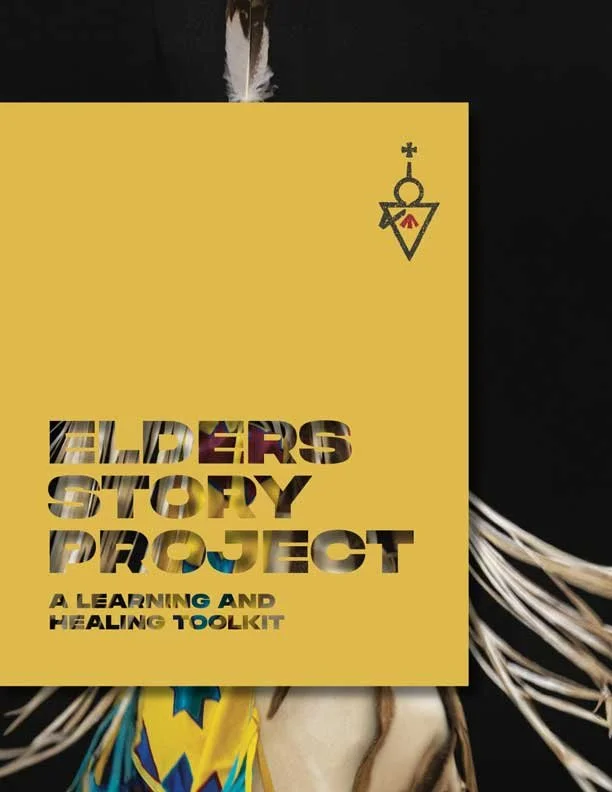Protocols
How to engage with Grandparents and Knowledge Keepers.
It is important to recognize that protocol is different for various First Nations, Métis, and Inuit. If you are not sure about protocol, you are encouraged to ask the Grandparent(s) or Knowledge Keeper(s) respectfully. Efforts are being made to incorporate traditional protocols into everyday practice so that Indigenous ways of knowing, in all their diversity, survive and thrive.
Image Credit: Arts CommonsAn ally recognizes that every person has a basic right to human dignity, respect, and equal access to resources. Relationship building between Indigenous and non- Indigenous people requires a certain humility to allow our hearts and minds to accept new, and often challenging, information. Being an ally is about disrupting oppressive spaces by educating others on the realities and histories of underrepresented people.[1] [1]Calgary Foundation
An accomplice works within a system and “directly challenges institutionalized/ systemic racism, colonization, and white supremacy by blocking or impeding racist people, policies, and structures.” (Opportunities for White People in the Fight for Racial Justice, 2016)
PROTOCOL: HOW TO OFFER TOBACCO AND MAKE A REQUEST WITH A GRANDPARENT OR KNOWLEDGE KEEPER
If you would like to learn more about the Residential School experience and survivor healing journeys, we encourage you to meet with Grandparent(s) or Knowledge Keepers and invite them to meet with your class or group to share their knowledge and experience. Approach a Grandparent or Knowledge Keeper the same way you would approach a grandparent you love and respect. Be mindful when asking Grandparents or Knowledge Keepers to share their Residential School experience. Some Grandparents or Knowledge Keepers may feel ready to speak about their experience, while others are not comfortable doing so.
When meeting with a Grandparent or Knowledge Keeper in Treaty 7, it’s important to offer Tobacco when you’re asking them to share their knowledge with you. Tobacco is one of the most important medicines to First Nations and Métis people in this area. Offering Tobacco is a sign of respect and shows you’re being sincere and genuine when making your request. The Tobacco will likely be used by the Grandparent or Knowledge Keeper for ceremonial purposes or as an offering to the land.
HOW TO ASK FOR GUIDANCE:
Most commonly in Calgary—recognizing that protocol will vary between Nations and between Grandparents—when offering Tobacco, you want to place the Tobacco on the table and move it in the direction of the Grandparent or Knowledge Keeper while clearly stating your request or asking your question. You must give the Grandparent or Knowledge Keeper the opportunity to deny your request by refusing to accept the Tobacco offered with the question.
They may deny your request because they may not be the right Grandparent or Knowledge Keeper to answer the question or have permission to share that information with you.
If they accept your request, they will pick up the Tobacco and assist/answer you as best they can.
Following the discussion:
It is customary to give a gift and/or honoraria of appreciation to the Grandparent or Knowledge Keeper to show that you are thankful for their knowledge, guidance, prayers, and/or blessings. Honoraria is not payment for service, but a gesture of respect and gratitude. While the honoraria should respect the value of what the Grandparent or Knowledge Keeper is offering, there is no standard gifting/honoraria amount, and it is what you can pay or afford.
ADDITIONAL ETIQUETTE AND WAYS TO SHOW RESPECT DURING MEETINGS WITH GRANDPARENTS:
Before a meeting, arrange and pay for parking if required and provide Grandparent(s) or Knowledge Keepers with directions.
Greet Grandparent(s) with a soft handshake (vs. a firm handshake).
Go in a clockwise direction around the room to allow participants to introduce themselves and where they are from.
Let Grandparent(s) or Knowledge Keepers know why they are at your meeting and the information you would like to learn from them.
Do not rush Grandparent(s) or Knowledge Keepers and build in extra time for discussion and storytelling.
Understand that clear decisions may not be made at one meeting but could take several sessions.
Provide water, coffee, tea, snacks, or a meal for Grandparent(s) and if offering a meal, Grandparent(s) should be served first.
You may need to make transportation arrangements with the Grandparent(s) and/or meet them in the parking lot if they are unfamiliar with the meeting location.







